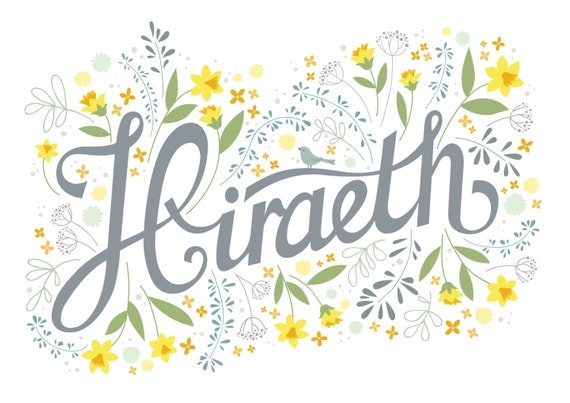
Last weekend we had a rare weekend staying in London. This happens about three times a year these days, either when we have something on that’s too exciting to miss, or – like last week – the working week has been too tiring, too hectic, too much, that it’s all I can do to crawl on to the sofa and stay there for two days.
However a good idea that seems at the time though, it slowly starts to fade by Saturday morning when we wake up to the sounds of traffic, cyclists holding loud conversations as they whizz past, early morning returnees from pubs and clubs. When we step outside it’s to a small backyard surrounded by other houses, and if we want some grass under our feet it’s a walk to the park.
Hiraeth is one of those peculiar Welsh words for which there is no direct translation into English. The closest is homesickness or longing, but for us Welsh, it’s more than that. Never ones to let words just be, we imbue them with an intensity and emotion of centuries of shared history and culture. Hiraeth is experienced more viscerally than mere homesickness; it’s a grieving for a lost place or time. Hiraeth doesn’t even need to be retrospective, you can feel it when still in the landscape or the moment, almost as a preemptive strike at what you’ll miss when you’re gone. The English ‘nostalgia’ feels a pale, fuzzy imitation when compared with this stark, bleak, impossible yearning.
Hiraeth illustration by Megan Tucker.
